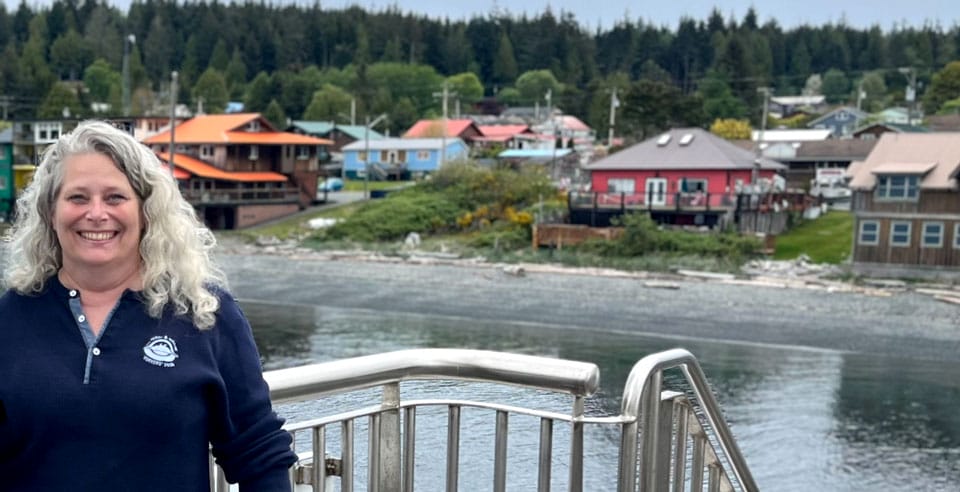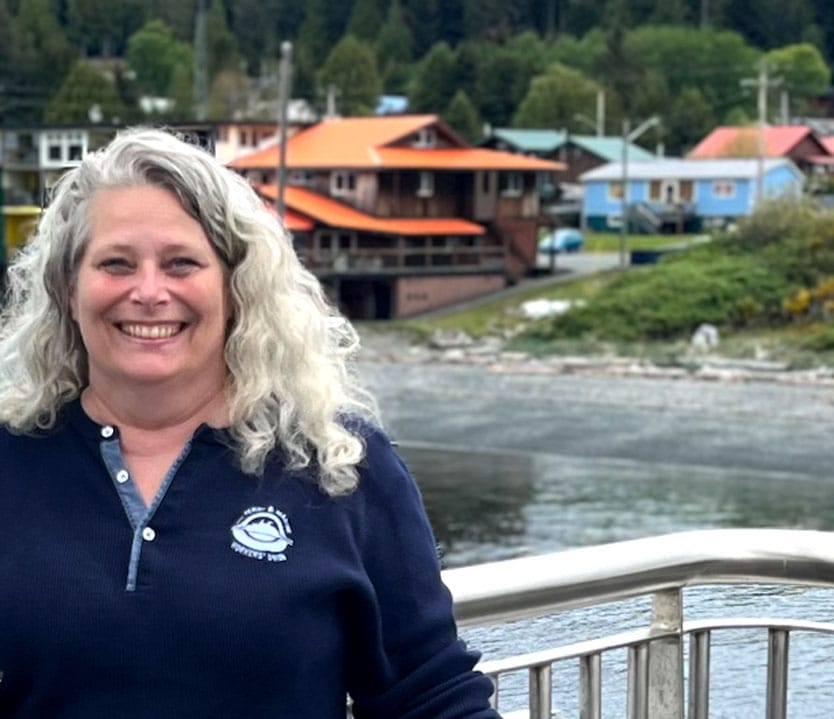Behind the booth: the reality for frontline terminal workers

I grew up on Denman Island and back then, BC Ferries was the place to work. My brother was on the Denman run and the senior ticket agent recruited me. I can’t do the cold, so I didn’t work on the vessel, but ticketing was a good fit.
I really like my job. I get to meet people from all walks of life, no two days are the same and the view from my office is spectacular. I also genuinely like the people I work with, and that’s rare.
Most people have no idea what goes into this job.
New folks are always surprised. People think ticket agents just take money and wave cars through. But we do so much more than that. We handle dangerous goods, manage tower control, coordinate with ships and terminals and deal with last-minute schedule changes, delays, weather, mechanical issues and passenger safety. At the smaller terminals, we do it all ourselves. Sometimes you’re the only one there.
We’re also the face of the company, so when things go wrong, we’re the ones who get yelled at. We deal with aggression, threats and verbal abuse every day. I’ve had passengers scream, throw things, pound on the booth. Just last night, I had to ban someone who raised his fist at me.
We’re not trained or supported to deal with the kind of incidents we face. People assume we’re just there to take tickets, but we’re also expected to deal with mental health crises, violence and abuse, often alone.
One long-time worker who transferred to the terminal from fom the ship left in tears after just four days. That says a lot. People don’t see how hard it is until they do the job.
At the same time, this work can be deeply satisfying. I spent 32 years at Denman. I watched kids grow up. A lot of them take the ferry to school every day, so we’d see them all the time. I watched them head off to class, then come back on grad night in their finest. Later, some came through with kids of their own. That kind of connection sticks with you.
The job’s gotten harder. People are more impatient. We’re seeing more mental health issues, more addiction. It’s not unusual for people to show up in crisis. I recently had a woman come through seeking help because she was being chased by her partner. That takes a toll.
But then there are good moments. A mom stopped me to say her schizophrenic son, whom I’d helped previously, is now doing well in a care home. So you get both ends, the hard and the hopeful.
If something isn’t being done with compassion, I’ll say so. We’re technically not allowed to administer Naloxone on terminal, but if someone’s dying? Stop me. I’m going to help.
Being a union activist helps. I look at a lot of issues through the lens of being a mom and a caregiver. That’s not just a woman’s role, but I do think we bring a different perspective. I’m surrounded by strong women: my executive is all female and most of the people I report to are women too. We’ve built strong relationships, and that helps.
If I could change one thing, I’d want the company to really listen to the frontline. Not just listen, act. We live it every day. What works at a major terminal doesn’t always work on a minor route so policies can’t all be the same. Our minor routes are special. Most of us work alone and in isolation. We know our communities. That matters.
Lezlie Gorosh-Carey, Local 11 President, BC Ferry & Marine Workers’ Union
